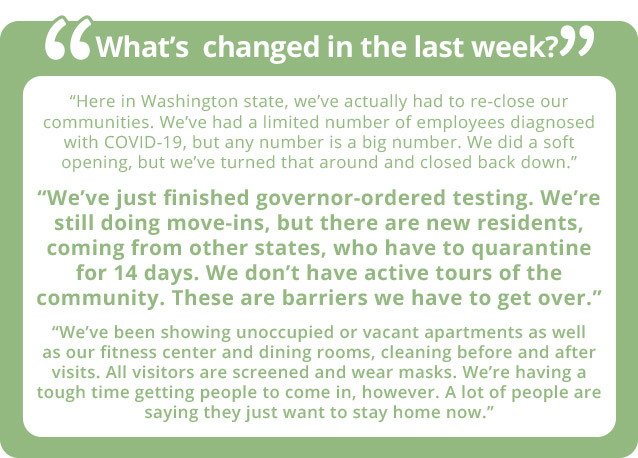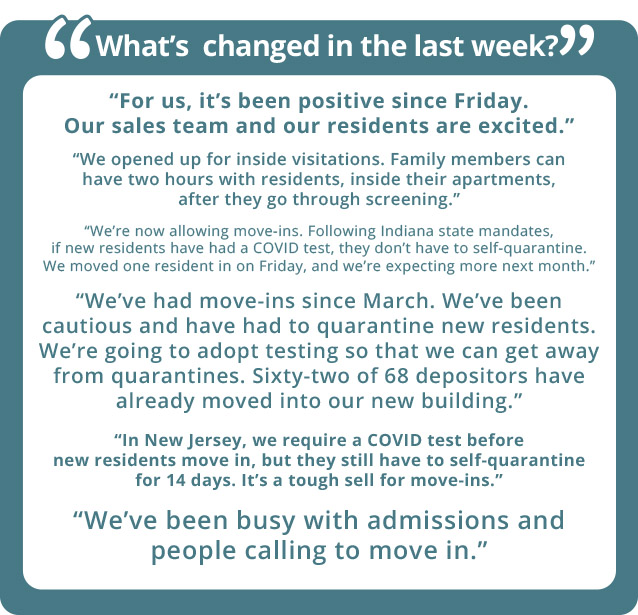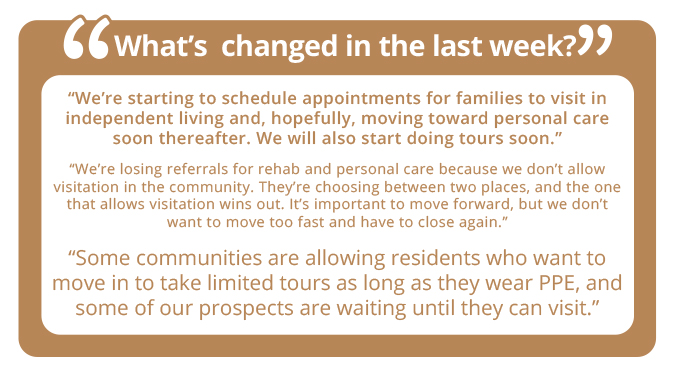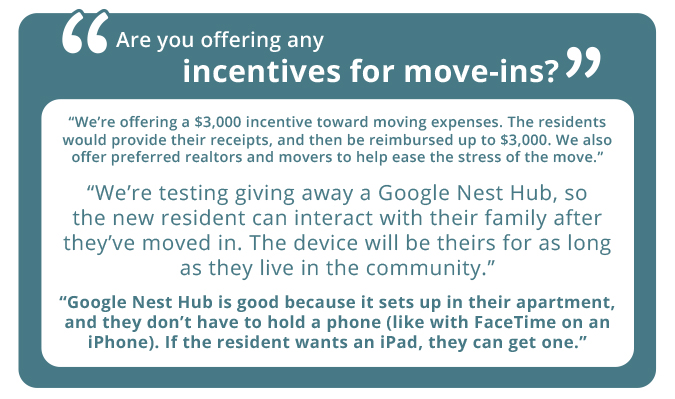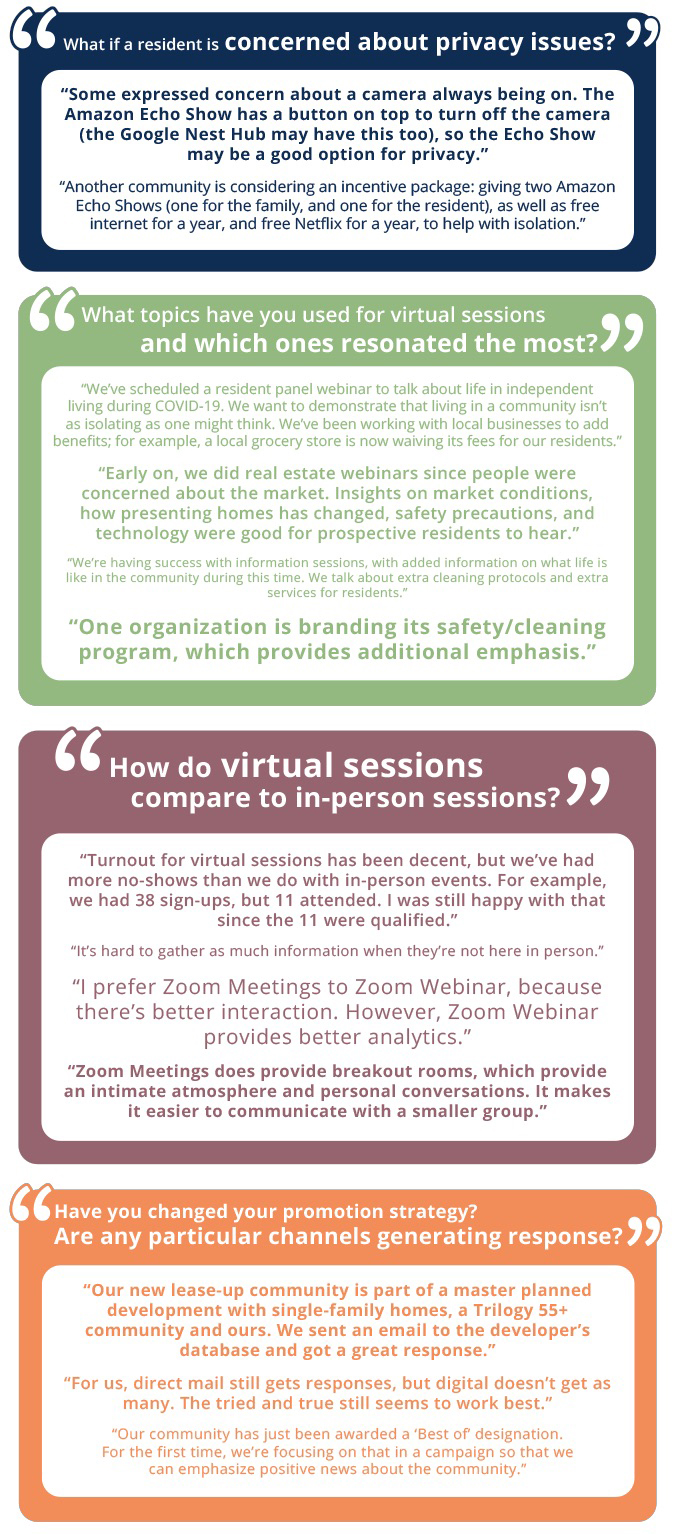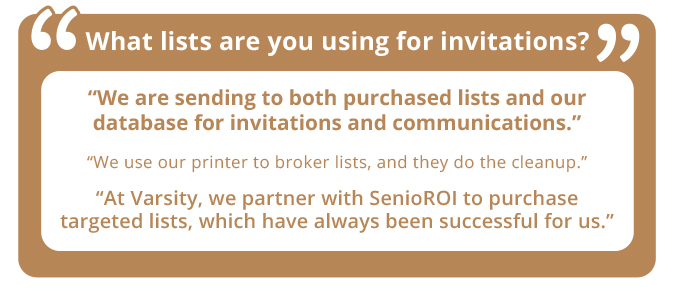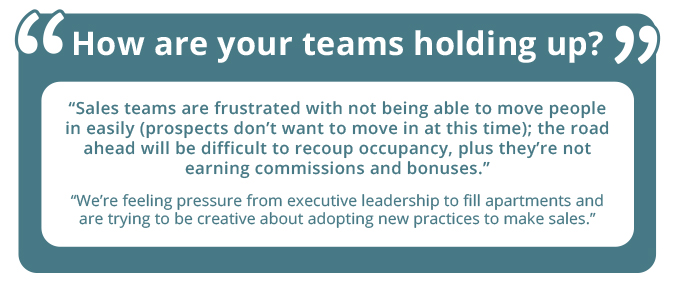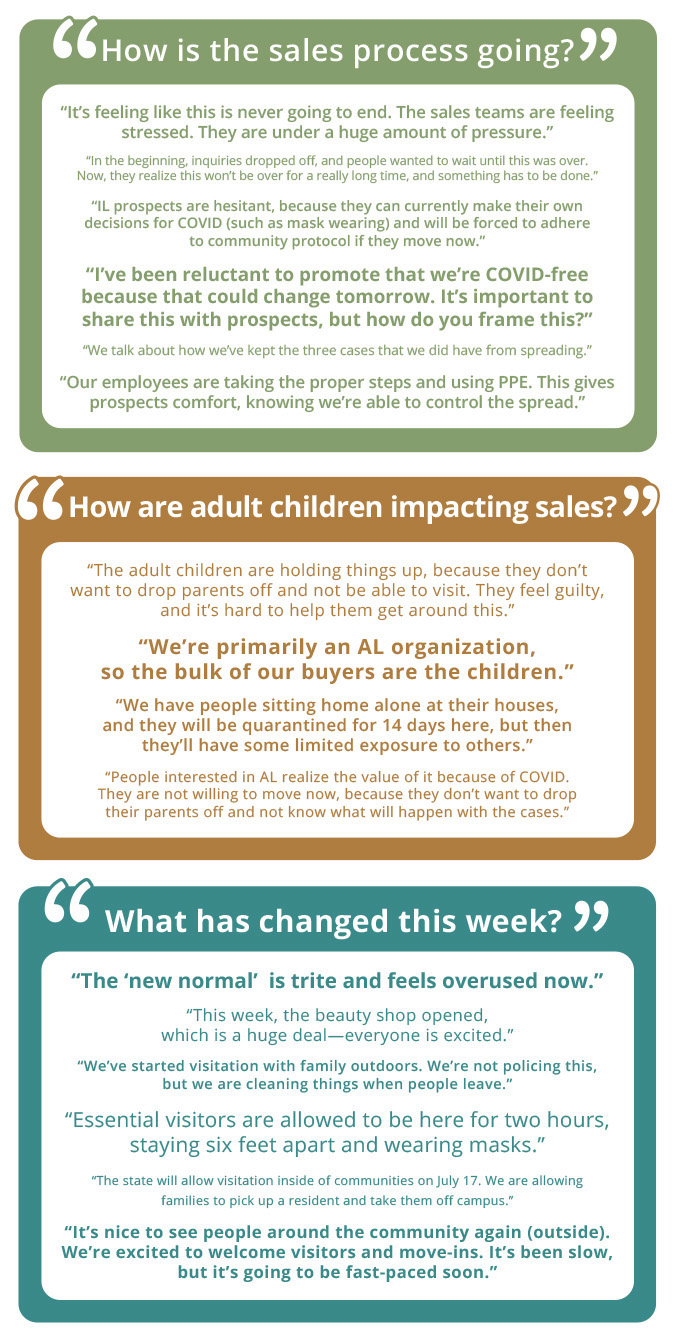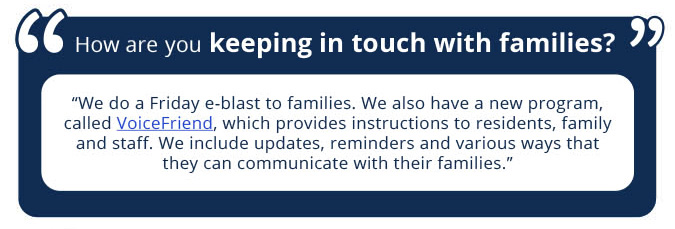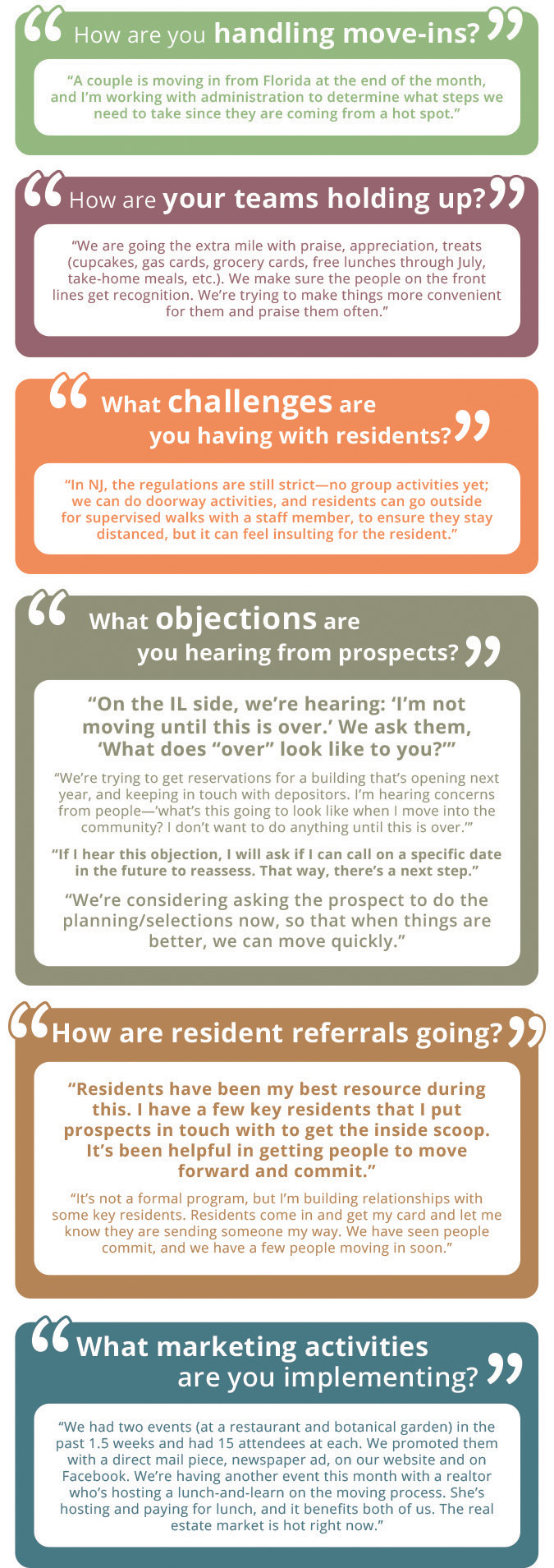In this guest post, Jill Janes, vice president of sales and marketing at Methodist Retirement Communities (MRC), shares her thoughts on how to market and sell communities during COVID-19.
The current environment is a challenge for salespeople and marketers, but at no point has giving up been an option. It’s the same as facing any other obstacle in the sales process. It’s our job to get around it. That’s what we do. Here are some tips and techniques my sales team is using to overcome the challenges of COVID-19.
- Stress the Positives of Senior Living
Residents who move to senior living regain ground. They slow down the aging process; they became more social, active and intellectually stimulated. We’ve lost ground during these past four or five months, but I believe 100 percent that our residents are still aging in a superior fashion to those living in their homes right now.
Our residents are enjoying three delicious, nutritious meals, delivered to their doors every day. There are virtual exercise and wellness programs, socially distanced opportunities to engage with others, consistent education about illness prevention, and resources for grocery delivery so that they don’t have to leave their communities. Someone aging in their home doesn’t have any of that. It’s important to stress these benefits during your conversations with prospects.
- Understand the Shifting Customer Profile
Our customer profile is changing, specifically for independent living sales. Customers were always intrigued by a maintenance-free, worry-free, lock-it-to-leave-on-vacation lifestyle. They found it appealing to get rid of a big, cumbersome house and find a new world of friends and neighbors. That’s no longer our message.
For the youthful senior who would’ve normally been attracted to this lifestyle, they’re pulling back. The ones who are leaning forward are older, more frail; they’re saying, “Oh, you’ve got three meals delivered to the door? You coordinate grocery delivery?” The people who are active and well don’t feel the pressures of the pandemic as much as those who are frail or less mobile, or who have transportation issues.
We’re finding that the people we’re bringing in the front door are coming to us with a genuine need more than ever before. We’ve had lots of sales despite the pandemic, but they’ve shifted; they’re from a need-based group of folks.
As an industry, we must shift our expectations for continued attrition—add shorter lengths of stay at all levels. Residents are aging, and people are coming in frailer than ever.
- Use Creative Tactics for Keeping Depositors Engaged
To keep depositors interested, we have to change tactics. Normally, the way we sell our community is through experiences—come have lunch with us, meet our residents. The question now is, how do we create ways to bring the experience to depositors when we can’t have them on campus?
What we’re doing is taking the experience to them. We’re giving people opportunities to taste our food by having our chefs make mini-casseroles—or lunches that we’ve boxed up, with yummy desserts—which we take to their homes. Depositors are receiving one meal a week, and getting activity packs with games and puzzles.
At these visits, we’re getting our sales staff in front of depositors to nurture the sale. One sales counselor went to a home and saw that the person needed their lawn mowed. He had it mowed and dropped off a pie with a note; it said, “We wanted you to have a taste of a worry-free lifestyle.”
- Provide Peace of Mind During Troubling Times
There hasn’t been a single thing since mid-March that has lined up with expectations—everything has been unpredictable and up in the air. The most valuable things we can give back to seniors are a sense of control, security and peace of mind. Potential language to use: “When everything is crazy and unpredictable, it’s nice to have something that you’re in control of.” “It has always been important to plan ahead, but it has never been more critical that you secure a plan for your future—in a community with excellent infection control and quality measures.”
- Accept Deposits Without a Move-in Date
We’re now accepting risk-free deposits without a move-in date, but we’re telling people that, by the end of the year, we’re going to reassess.
- Offer Preapproval for Life Care
We’re offering to preapprove candidates for our Life Care Communities right now. If they pass a medical exam and have a health crisis in six months, they’re already approved for Life Care. We may reassess this policy at the end of the year, so this is not forever. People need to take advantage of it while we’re in this unusual situation.
- Increase Bonuses for Resident Referrals
Most of our traffic and successes are coming from people we have relationships with, through resident referrals and friends of the community. Our residents are saying, “This is wonderful; they’re taking care of us so well.” To thank them for their participation, we’ve dialed up our residential referral bonus an extra $500.
- Offer Incentives to Sales Staff
We’re adding commissions now too. After their first move-in for the month, for every additional move-in, salespeople will receive $500. This discourages them from letting the deposit linger, and encourages them to cross the finish line.
We hope you found these tips helpful! Read more sales and marketing advice in another guest post by Jill: Using a Blue-Sky Approach to Sell Current Inventory.
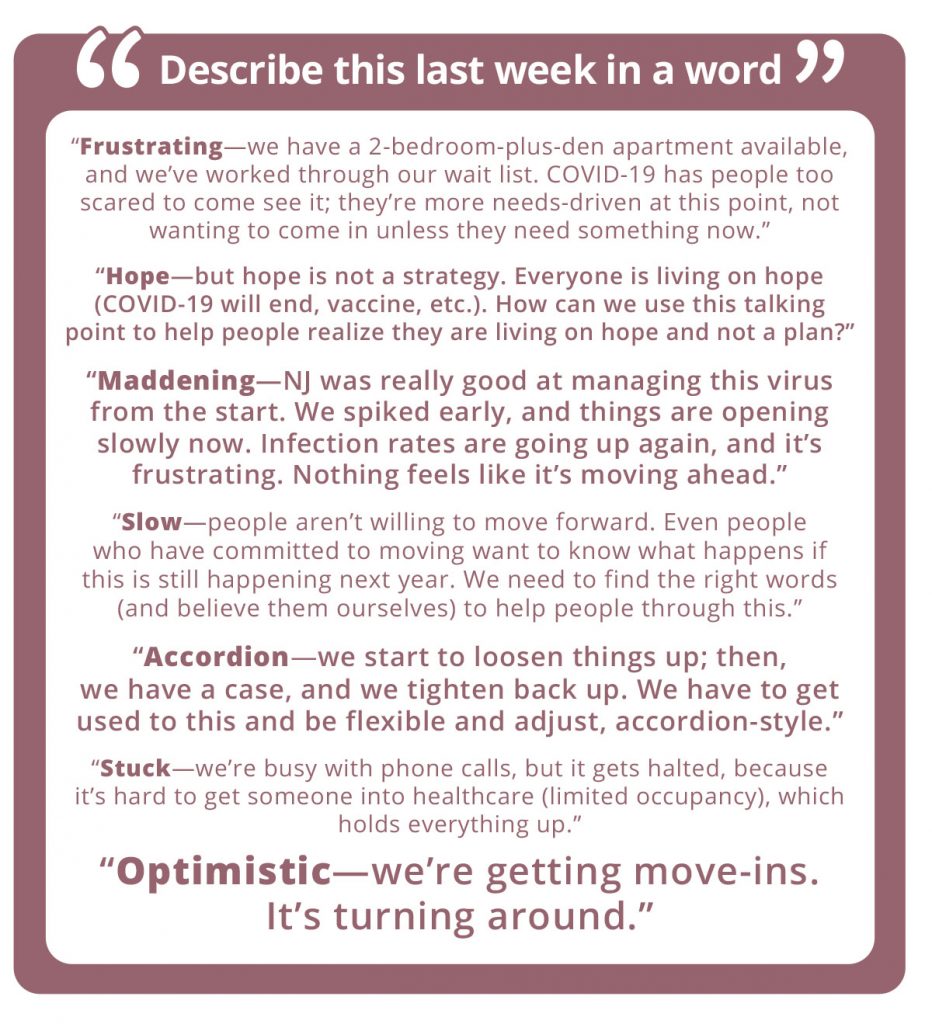
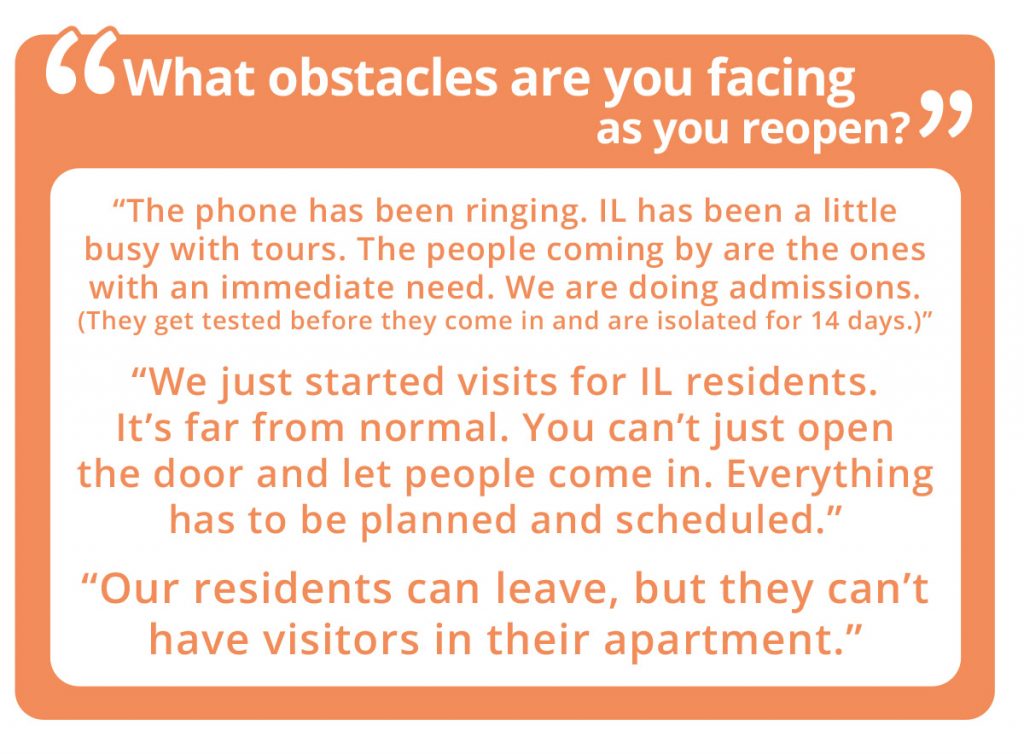
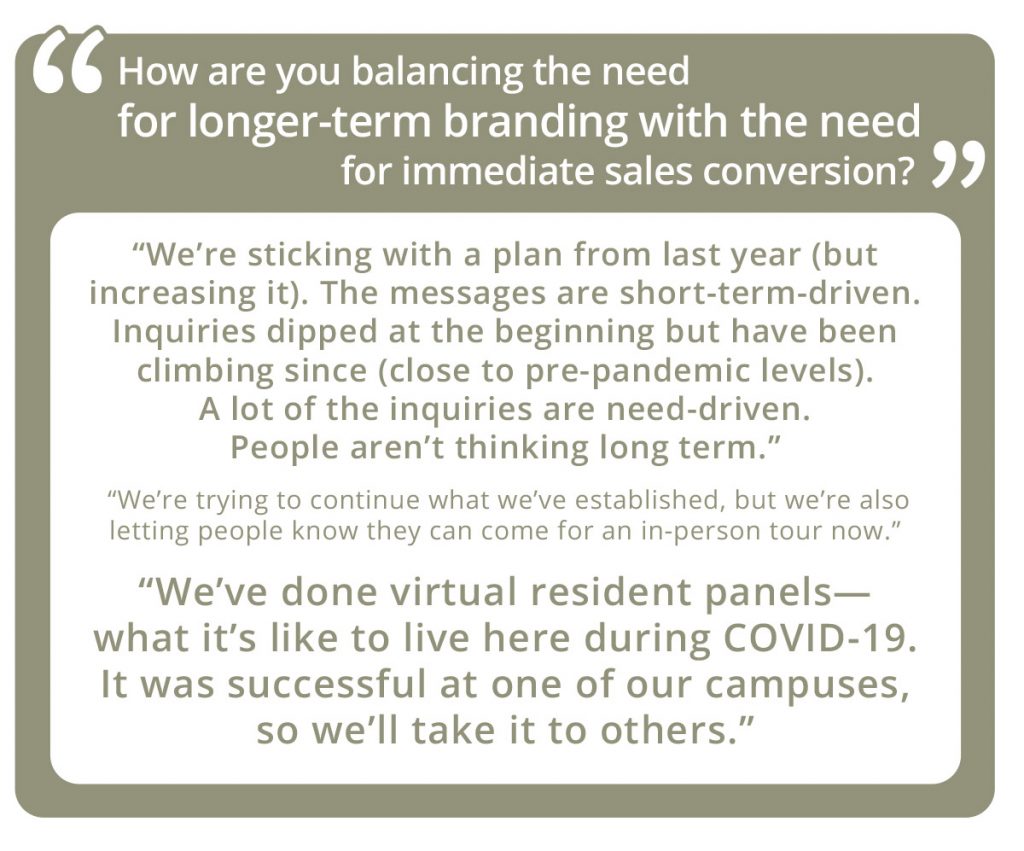
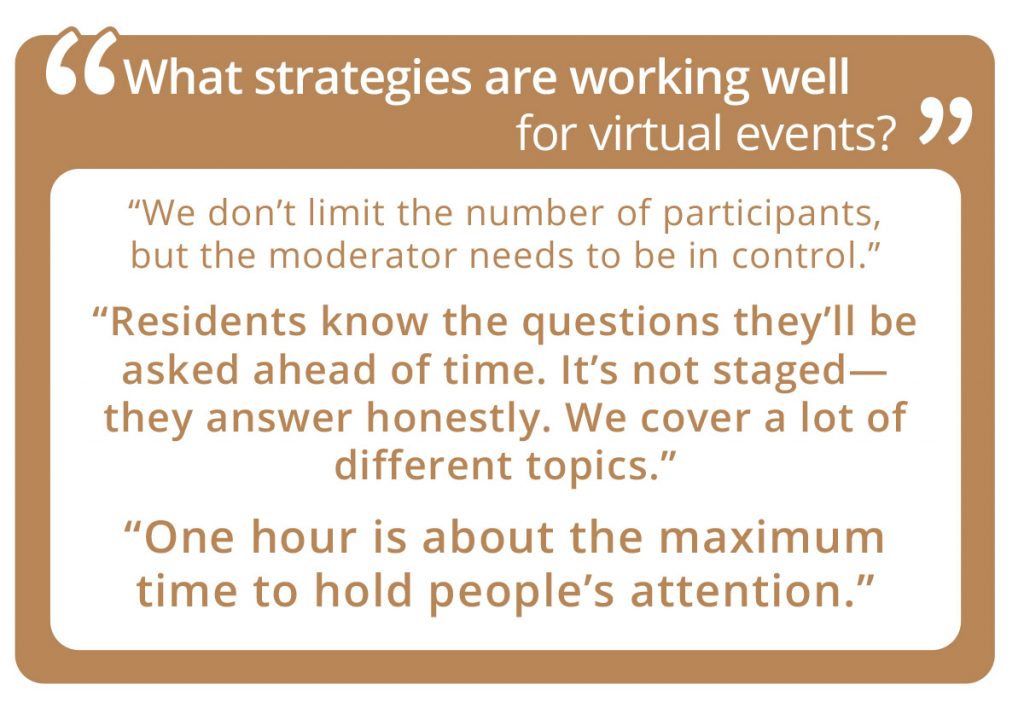 J
J